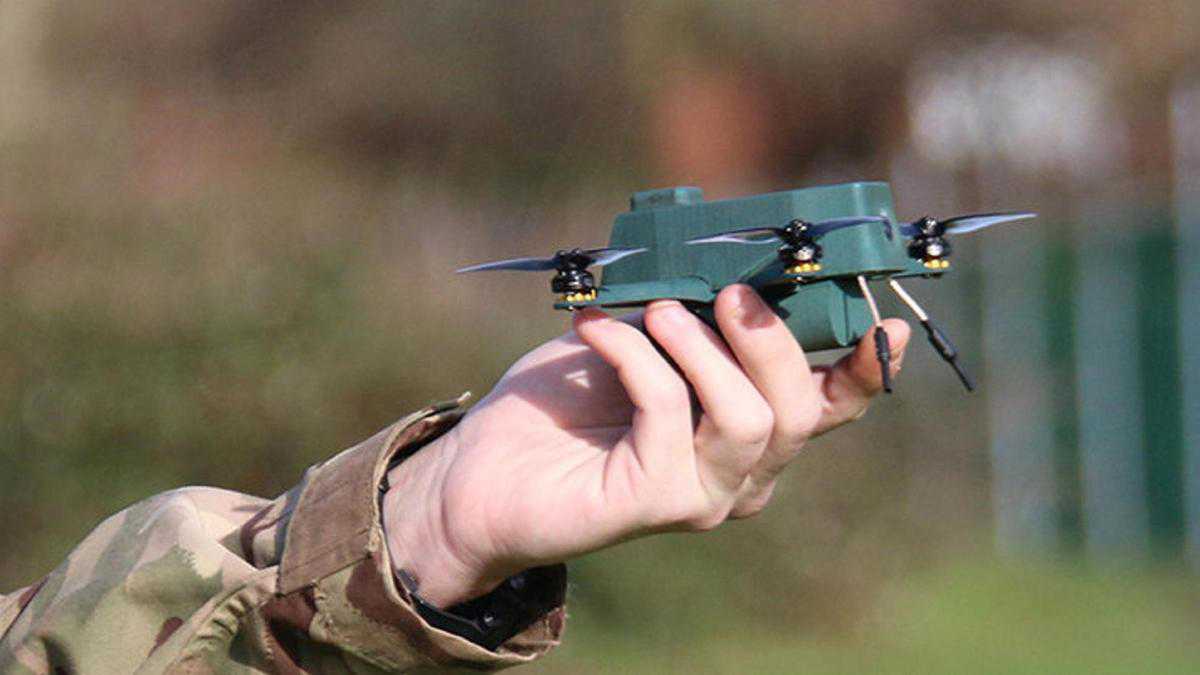Nano 'Bug': Uk Army starts trial of pioneering pint-sized drone
31 December, 2020

A tiny prototype drone has been developed by BAE Devices and the first 30 devices have been delivered to the Uk Army within a trial.
The engineering giant collaborated with UK drone maker Uavtek to build up the nano “Bug” drone, an unmanned aerial vehicle that weighs a comparable as a typical smartphone and has a 40-minute battery life and two-kilometre range.
The drone can fly in winds greater than 80kph. It had been the only nano-drone able to cope with the uncompromising temperature during a new Army Warfighting Experiment function hosted by the Ministry of Defence’s Future Ability Group.
This Uavtek promotional video shows the drone doing his thing.
"Our experience in growing large volumes of secure hardware means we could actually help the team switch the excellent design right into a real merchandise our Armed Forces may use," explained James Gerard, principal technologist at BAE's Applied Cleverness business.
Innovations at the twelve-monthly experiment event are created to explore emerging technology and identify particular capabilities.
This year's focus was on the Agile Command, Control and Communications space suitable for rapid exploitation.
Emphasis is located on innovations that force the boundaries of technology and military capability, testing a range of prototype systems by putting them in the hands of an individual while giving military feedback to suppliers.
BAE and Uavtek are actually working on the next advancements of the nano-drone, exploring sensing tools and capabilities that could be added, and how it could be integrated with other army equipment.
Boris Johnson in November pledged £16.5 billion ($22.47bn) to the defence budget over four years.
The extra funds are together with a commitment to raise the existing £41.5bn finances by 0.5 percentage points above inflation.
Taken together, the increase amounts to £21.5bn until March 2025, and insiders said it could mean the UK remained Europe’s most important defence spender.
Gurus said the windfall represented the greatest real-term increase in the defence spending plan since Margaret Thatcher’s premiership.
Mr Johnson said he decided to boost shelling out for the armed forces “in one's teeth of the pandemic” because “the defence of the realm needs to come first”.
He is also keen to show US president-elect Joe Biden that the UK wants a solid military capacity after Brexit.
But Mr Johnson as well confirmed a delay for the government's long-awaited integrated overview of the armed forces before New Year.
The review will lay out the UK's global priorities, and can include an assessment of the security risks facing the country and how the British forces are adapting to meet them.
While talking about reform this month, Defence Secretary Ben Wallace this month warned that "we are no more leading and innovating plenty of", giving a variety of threats including missile technology.
"We are in danger of being prepared limited to the big attack that may never arrive, while our adversaries might tend to outflank it even if it can," Mr Wallace said.
"Some tough alternatives will still have to be built. But those choices allows us to purchase new domains, new tools and new means of working."
Source: www.thenationalnews.com
